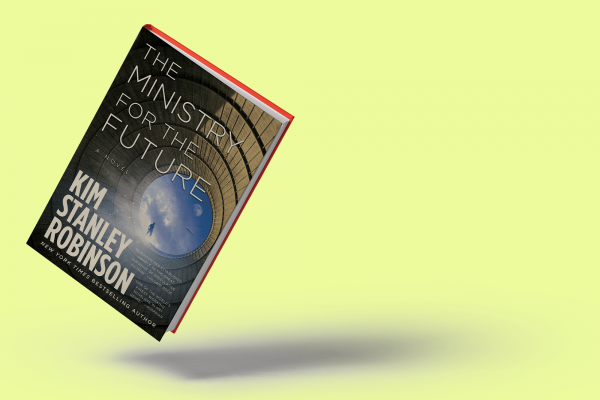IT BEGINS IN the way the 2020s could end: with a climate change-driven heat wave that kills 20 million people in India. Kim Stanley Robinson’s work of science fiction is heavy on the science and light on the fiction. Indeed, the “fiction” of this novel reads more prophetic than futuristic. Just like biblical prophets, Robinson is less interested in predicting a far-off world than seeing our current world for what it is. The words of the prophet Jeremiah would fit snugly in this book: “Disaster overtakes disaster, the whole land is laid waste” (4:20).
Robinson’s vision of a response to climate change veers on the edge of technological utopianism without ever falling into the abyss. The airships, cryptocurrencies, and drones of Robinson’s novel are not simply fantastic simulations of a utopian (or dystopian) world. They are pragmatic responses to a world that is burning and melting under our feet. While the need for technological solutions is so apparent in Ministry (and in our own world), Robinson’s hope is not located in technology. Rather, the tentative hope of Ministry is found in the unwavering humanity of its many heroes.
Like any good prophet, Robinson can help us understand how we might bear the weight of the world’s destruction while lifting our eyes toward the hope of restoration. Both the story and form of Ministry point toward a polyphonic approach to climate solutions. Rather than write from a single perspective, Robinson weaves together different narrators and narratives about our climate-changed future. The result is a story about crisis and resilience that does not rely on a deus ex machina to save the planet. Rather, victories are interspersed with losses, and occur from the local to the global scale. It is a story that lifts us out of the political dreams of a single technocratic panacea and into improvisational responses to the exigencies of climate change.
In the midst of heatwaves and floods, geopolitics and governance, Ministry shines forth with humanness. This is perhaps the most compelling part of The Ministry for the Future: Hope is found in the human moments. In the midst of an existential crisis of planetary scale, it can seem prudent to strip ourselves of that which makes us human: the grief of death, the pain of separation, the excitement of love. Compared to the scale of the problem, our individual losses and victories can seem paltry. Robinson inverts this line of thinking, handing the pen to those who, in the midst of all that climate change is taking away, are fighting to hold on to that which they love the most.
It is precisely this approach that makes the heroes of Ministry—and there are many—able to persevere, despite the profound depth of the crisis. Just like in our world, the climate heroes of Ministry are not the politicians and celebrities who act with pomp and hubris. They are the refugees and farmers and bureaucrats who everyday find their own way to be more human. Who trust that, by the grace of God, their small part might be redeemed into something greater.

Got something to say about what you're reading? We value your feedback!







